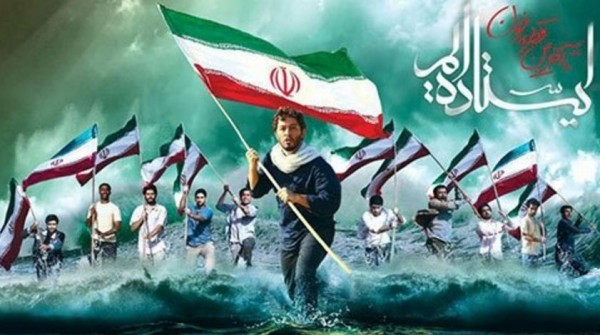When President Obama sold the disastrous Iran nuclear deal to the American people he famously described it in these terms. We could support the deal and opt for peace, or we could oppose the deal and choose war. It was a simple binary choice, and only a madman would decide to begin a war, which could easily be avoided. That the choice was on its face a false one and that the most logical course of action was simply to keep in place the sanctions, which had brought Iran to its knees, did not matter.
The Iran deal became reality. The Iranians were released from sanctions, regained access to billions of dollars frozen in accounts around the world and were once again free to shop for arms wherever they chose. The results are clear to see. We are closer to war with the Islamic Republic of Iran than ever before.
We talk often about how appeasement ultimately leads to war. It does, but we perhaps tend to skip a necessary analytical step in reaching such a conclusion. It is not appeasement, per se, which leads to war. It is that ultimately there comes a day when that appeasement must stop and when the aggressor, emboldened by past concessions, pushes one step too far. It is not appeasement that causes conflict. It is the ultimate necessity for it to end.
The Iranians interpreted the Obama Administration’s actions in agreeing to the nuclear deal, in releasing $150 billion dollars in funds and in paying ransom for hostages, as any reasonable person would anticipate. They saw these actions as signs of weakness, and they moved aggressively to take advantage of them.
In Iraq 100,000 Shia militiamen, many of them members of organizations built from the ground up by Iran and supervised by Iranian Revolutionary Guard Corps (IRGC) personnel operate with impunity now recognized by the government in Baghdad as legal entities on a par with the Iraqi Army. The recently assigned Iranian ambassador to Baghdad is a former IRGC general. Iraq is only steps away from becoming a full-fledged client state of Iran.
Lebanon has become a creature of Iran and Hezbollah. The new president is bought and paid for by Hezbollah, and all the real decisions regarding Lebanon’s foreign policy are being made in Tehran. What was a nation with a major terrorist group operating inside its borders has become a terrorist group in possession of a national flag.
Yemen has been set afire by Houthi rebels armed and trained by Iran. They regularly fire ballistic missiles into Saudi Arabia from Yemen. They have twice attacked US warships with missiles provided to them by Iran. Last week they almost sank a Saudi warship in a suicide boat attack, and there is substantial evidence that they thought they were attacking an US Navy ship when they did so.
Bahrain, beset by Iranian-instigated Shia terrorism for years, has been threatened directly by Iran in recent months. The Iranian statements have been clear and unambiguous. Bahrain belongs to Tehran, and Tehran will “liberate” it from Sunni occupation.
US naval vessels in the Persian Gulf have been regularly harassed. Missiles have been launched dangerously close to our warships. The crews of our vessels have in one case been seized and paraded around as captives for propaganda purposes.
Our response across the board has been weak or non-existent. In Iraq we continue to provide air cover and logistical support for Iraqi operations that look increasingly less like a national effort at defeating terrorism and more and more like a Shia conquest of Western Iraq. We have ignored the wholesale capture of Lebanon by Hezbollah. In Yemen we have responded to attacks on our ships and personnel with limited, short duration attacks on specific targets and then returned to dormancy.
President Obama is now gone. President Trump is in office and signaling loudly that our actions will be qualitatively different in response to any future Iranian provocations. So far, the Iranians show no sign of listening or altering course. Now is the time when the danger is greatest of miscalculation and direct confrontation.
Already have an account? Sign In
Two ways to continue to read this article.
Subscribe
$1.99
every 4 weeks
- Unlimited access to all articles
- Support independent journalism
- Ad-free reading experience
Subscribe Now
Recurring Monthly. Cancel Anytime.
Houthi rebels in Yemen continue to push the envelope. There is no indication they intend to curtail their actions. If they do not, and missile attacks on our ships continue, we must accept that our defenses are not perfect and our weaponry not inherently so vastly superior that we cannot be hurt. There is the very real prospect that we may see a US warship crippled or sunk and that such an incident could very well lead to war.
Sometime in the next few months Mosul will be cleared. Baghdad will declare ISIS in Iraq defeated. The moment that happens, we can anticipate calls from Iranian puppets in Iraq for our troops to leave. How long after that we will see a return to the days when Iranian-backed Shia militia were killing and maiming our personnel is anyone’s guess.
We have allowed a very old and very dangerous enemy out of its cage and filled it with confidence and resolve. The challenge now is to regain control of the situation and restore an appropriate balance of power in the Middle East without ending up in a shooting war.
Featured image courtesy of the Islamic Republic of Iran










COMMENTS